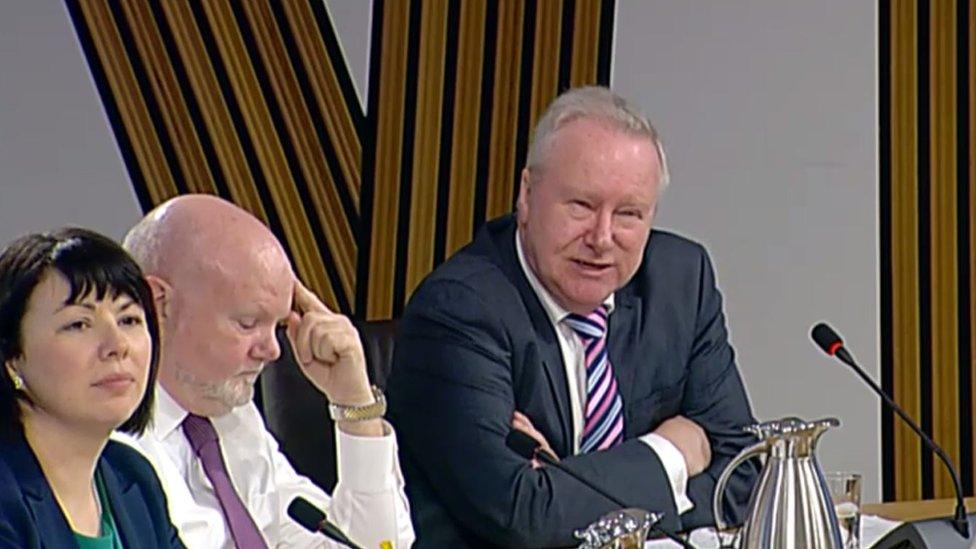Scottish police authority chief executive retires
- Published
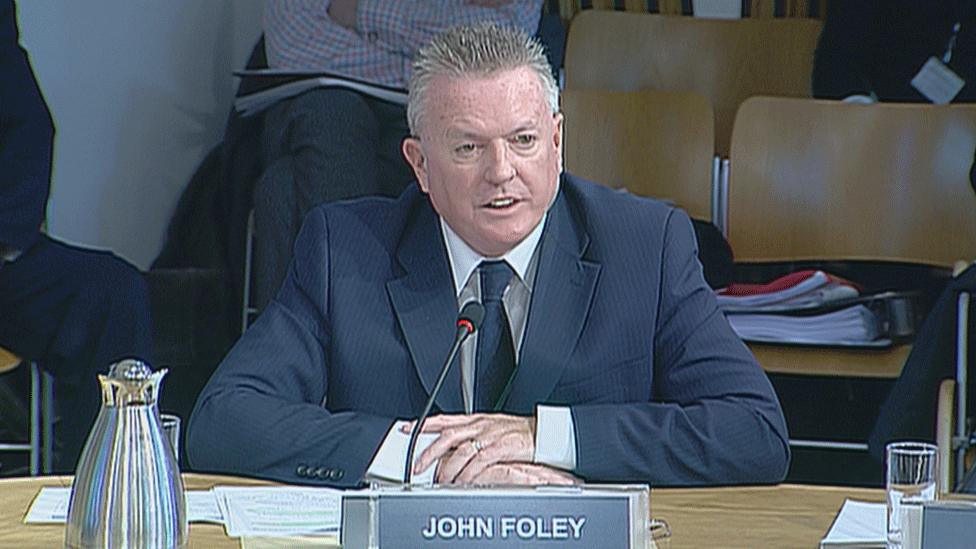
John Foley is taking early retirement
The chief executive of the Scottish Police Authority (SPA) is to retire early.
John Foley is expected to leave his position in October, when the SPA accounts are signed off.
A statement from the SPA said Mr Foley would be paid in lieu of his contractual notice as well as an early retirement payment.
Earlier this year, Scotland's police watchdog had criticised "dysfunctional" relationships at the top of the SPA.
A review by HM Inspectorate of Constabulary in Scotland described a "fundamental weakness" at the board.
Mr Foley's departure follows the announcement two months ago that SPA chairman Andrew Flanagan was to resign.
The SPA statement said the role of chief executive has become redundant because of a change which will see the director of forensic services reporting directly to the authority's board.
Future strategy
Commenting on the decision that Mr Foley should leave, Mr Flanagan said: ""This new reporting arrangement is a further tangible step in strengthening oversight of forensic services, and will support work to develop a long-term strategy for forensics to complement the 2026 strategy for Police Scotland.
"I want to pay tribute to the professionalism which he has shown throughout our consideration of this, and indeed for the valued service he has given to SPA and policing over what has been a period of unprecedented change."
The SPA said it is not possible "at this stage" to calculate a definitive figure for the financial settlement being offered to Mr Foley.
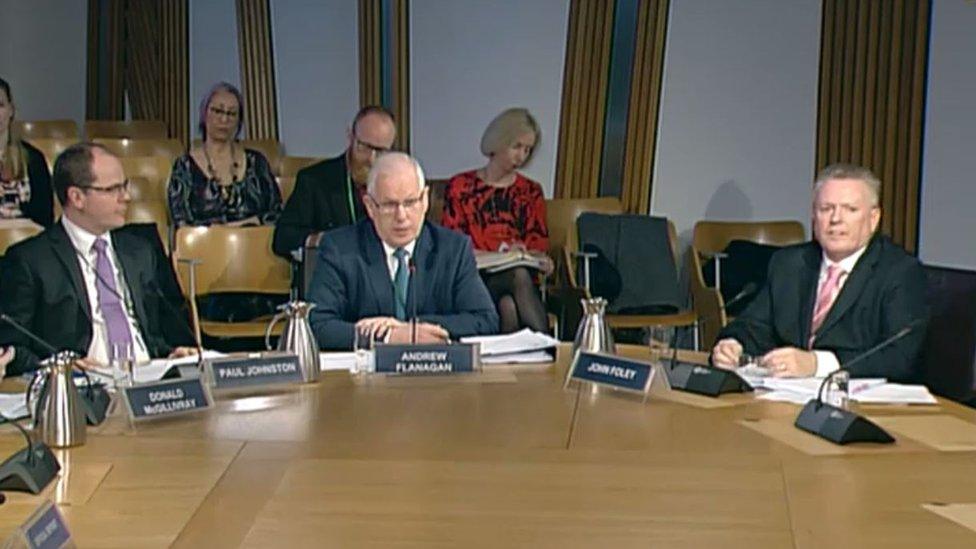
The watchdog report found "dysfunction" between SPA chairman Andrew Flanagan (centre) and chief executive John Foley (right)
It has, however, agreed with Mr Foley that the costs of the package will be made publicly available "as soon as practical" after his leaving date.
Mr Foley said: "The SPA has continued to evolve and improve since its inception in 2013 and strengthening the governance of Forensic Services is the next stage of that journey and one I fully support.
"Clearly the revised arrangements have significant implications for the CEO (chief executive officer) role I currently hold and following detailed discussions with the board since the start of the year I have chosen to seek early retirement.
He added: "I am confident that the authority and policing will continue to improve in the coming years and I want to thank all of the staff and officers who I have had the pleasure of working with over the past four years."
Chief officer
Although the CEO position is considered redundant, the SPA said it was seeking a 12-month secondee to act as chief officer for the SPA.
The HM Inspectorate of Constabulary in Scotland report into the authority, authored by inspector Derek Penman, found "positive signs of improvement" in SPA board operations over the last 18 months, with improved relationships between the SPA and Police Scotland and the development of the Policing 2026 strategy described as a "major milestone".
But it was highly critical of the approach which had led the SPA to meet in private.
Mr Penman said the "recent parliamentary scrutiny and media concerns over openness and transparency have weakened public confidence in the SPA and detracted from its ability to perform its statutory function".
He described the decision to hold meetings behind closed doors as "precipitous", and said it "should not have been implemented" until signed off by the board in full.
Mr Penman welcomed the decision of the board to revert to holding meetings in public and publishing committee papers in advance, but wrote: "I am aware that some board members continue to maintain that their decisions to implement private meetings and publish papers on the day of the board were essentially correct.
"There is a fundamental need to listen to the views of stakeholders to maintain public confidence, and on this occasion the SPA has failed to do so until pressed by parliamentary committees.
"The SPA must recognise the legitimate interests of parliament, local authorities, staff associations, the press and the wider public in the scrutiny of policing in Scotland."
'Gross misconduct'
The SPA describes its role as "to maintain policing, promote policing principles and continuous improvement of policing, and to hold the Chief Constable to account".
Police Scotland's chief constable is currently the subject of an inquiry over allegations of gross misconduct.
Phil Gormley had faced calls to step aside while he is under investigation by the police watchdog.
BBC Scotland understands the probe concerns an allegation about bullying.
The SPA decided suspension was "not appropriate" in the circumstances.
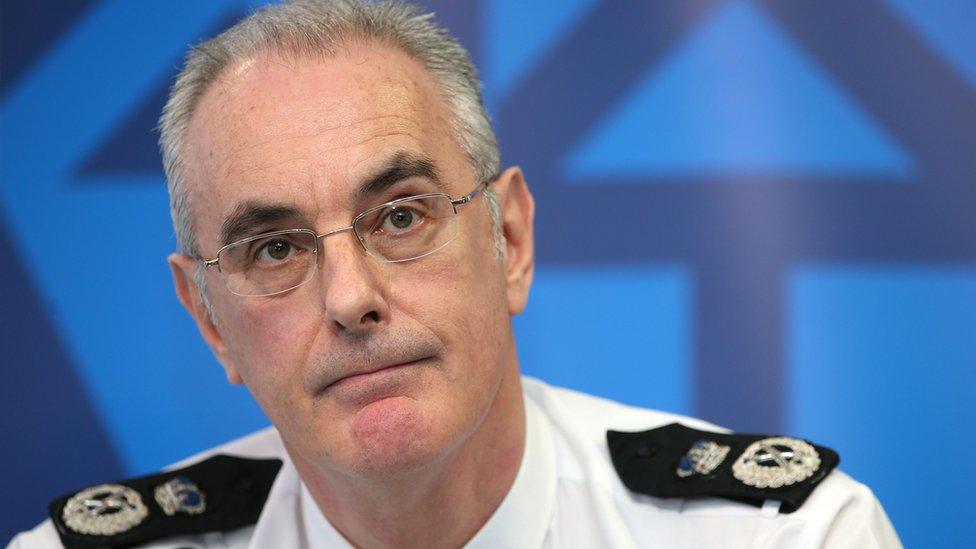
Phil Gormley is being investigated by the police authority
- Published27 July 2017
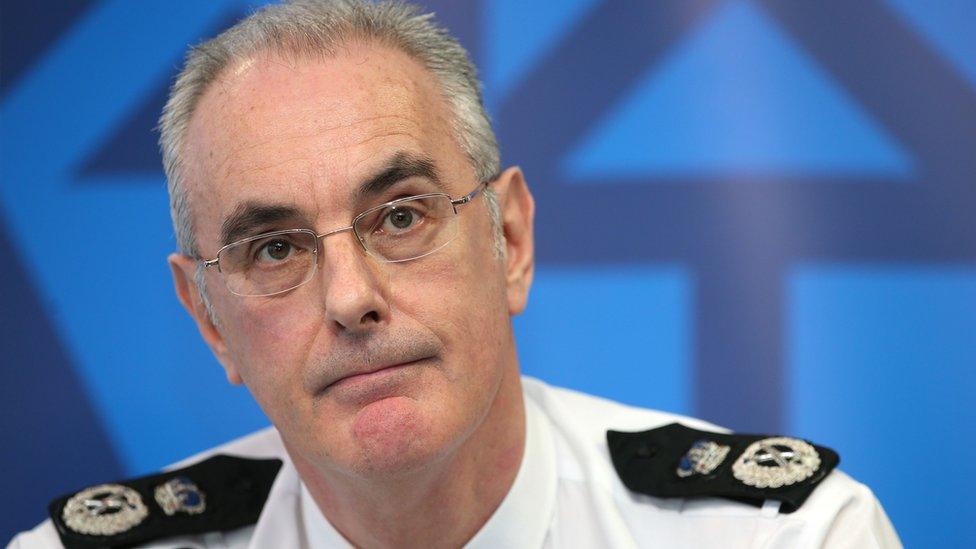
- Published27 February 2017
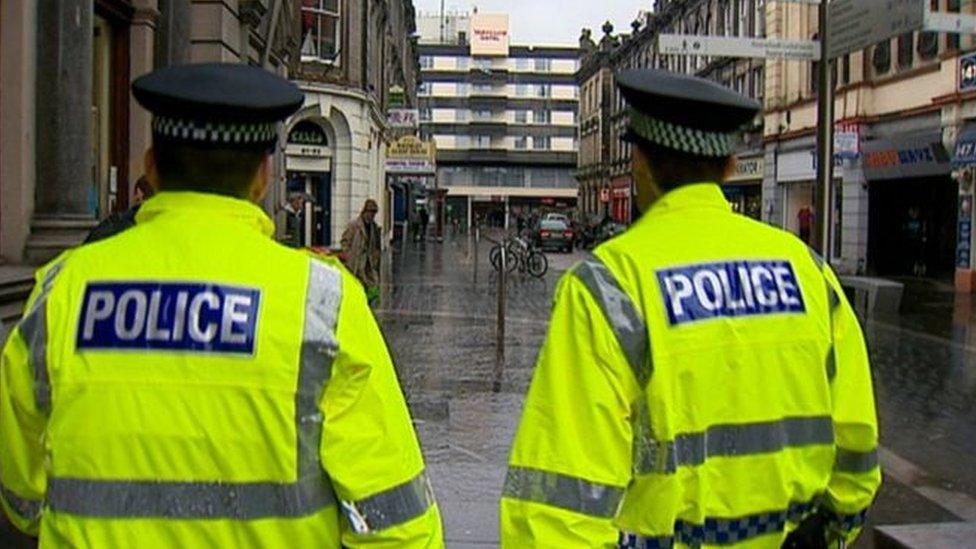
- Published26 January 2017
